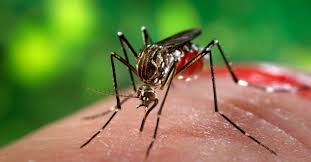Faridabad, July 17, 2024 – In a significant leap for health research in Asia, Union Minister Dr. Jitendra Singh inaugurated the region’s first health research-related “Pre-clinical Network Facility” under the Coalition of Epidemic Preparedness Innovations (CEPI) at the Regional Centre of Biotechnology, part of the Translational Health Science & Technology Institute (THSTI) in Faridabad.
The Coalition for Epidemic Preparedness Innovations (CEPI) has recognized BRIC-THSTI for its advanced capabilities in managing BSL3 pathogens, selecting it as the 9th pre-clinical network laboratory globally and the first in Asia. This state-of-the-art facility includes one of India’s largest small animal facilities, capable of housing approximately 75,000 mice, alongside other species such as rats, rabbits, hamsters, and guinea pigs.
Dr. Singh, Minister of State (Independent Charge) for Science and Technology and other key portfolios, also inaugurated the Genetically Defined Human Associated Microbial Culture Collection (Ge-HuMic) Facility. This new repository will provide essential microbial cultures to research institutes, universities, and industries for comprehensive research and development activities. It aims to foster national and international collaborations across academic institutions, hospitals, and industries, providing genetically characterized specific pathogen-free animals for researchers within India.
During the inauguration, Dr. Singh highlighted the achievements of THSTI over its 14-year journey, particularly its critical role during the COVID-19 pandemic. He acknowledged the efforts of Dr. M.K. Bhan in the establishment of the institute and emphasized the significant milestones achieved by THSTI, especially in vaccine development and research.
“The institute has seen remarkable progress in a relatively short span, particularly during the COVID-19 pandemic, which underscored its importance and contributions,” Dr. Singh remarked. He also assured continued support for the Department of Biotechnology’s (DBT) infrastructure needs and highlighted DBT’s progress despite limited resources.
The THSTI, under the Biotechnology Research and Innovation Council (BRIC) and the Ministry of Science and Technology, has facilitated over a dozen agreements and MoUs with the private sector for vaccine development. These collaborations focus on research in diseases such as Nipah Virus and Influenza, aiming to drive innovative and fundamental research, support translational research for drug and vaccine testing, and foster interdisciplinary collaborations.
Dr. Singh also discussed contemporary health challenges, noting the burden of lifestyle-related metabolic diseases in India and emphasizing the government’s commitment to initiatives like TB Mukt Bharat. He praised THSTI’s role in developing monoclonal antibodies for Nipah Virus and highlighted its contributions to practices like kangaroo-mother care, now recommended by the WHO to reduce infant mortality.
The event saw the presence of notable figures, including Dr. Rajesh Gokhale, Secretary of DBT, Dr. K. Shrinath Reddy, former president of the Public Health Foundation of India, and Dr. Karthikeyan, Director of THSTI, who all lauded the institute’s pivotal contributions to health research and development.
This inauguration marks a significant milestone for India’s health research landscape, positioning it as a leader in epidemic preparedness and translational health science.











